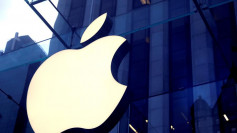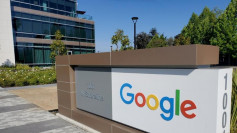Apple's stock faced a dismal start to 2024, plummeting about 3.6% on January 2, marking its largest single-day decline since August 4, 2023, and reaching its lowest close since November 9.
The catalyst for this steep decline was Barclays. A team of analysts led by Tim Long downgraded Apple's stock from "equal weight" to "underweight," their first downgrade for Apple to this level since 2019. Additionally, Barclays slightly lowered Apple's target price from $161 to $160, about 17% below the previous trading day's closing price, indicating an expectation that Apple's stock price could fall by approximately 17% from the prior week's basis over the next year.
Barclays' report suggested that after two years of outperforming the trend, 2023 and 2024 would be years of mean reversion for Apple's stock. After a review, analysts slightly reduced their expectations for Apple, anticipating continued weakness in iPhone sales and its product mix, with Mac, iPad, and wearables performance yet to rebound. This review included deteriorating iPhone demand outside China and persisting weakness in developed markets.
Barclays based its forecast of Apple's product weakness on several factors:
- It predicted iPhone performance will continue to be weak until the iPhone 16 is launched in 2024. Barclays has a negative outlook on iPhone 15 sales and product mix and believes no feature or upgrade could make the iPhone 16 more appealing.
- Barclays believes Mac and iPad need further recovery to pre-pandemic levels. Combined, these two products have not grown compared to pre-COVID levels, despite being 20% to 30% higher than industry levels.
- The firm anticipates a slowdown in the growth of Apple's services business and increased regulatory risks. It forecasts service business growth at about 10% and 8% for fiscal 2024 and 2025, significantly lower than the previous expectation of around 20% growth. Moreover, Barclays expects to make an initial judgment on Google's Traffic Acquisition Costs (TAC) in 2024, and some App Stores may face more scrutiny.
- Apple's valuation is high, especially after several quarters of weak performance. Apple's stock was strong overall in 2023, but with a decrease in earnings per share (EPS), the stock's performance was entirely due to valuation multiple expansion. Barclays doesn't believe these metrics will rise and expects sustained pressure on price-to-earnings ratios throughout the new year.
- In the long run, Barclays believes the return on Apple's ecosystem is diminishing. Over the past decade, Apple's ecosystem shifted from being Mac-driven to iPhone-driven and remains very strong. However, Barclays expects new products/services to have a smaller impact on the ecosystem, making growth more challenging in the coming years.
Despite a 48% increase in Apple's stock price in 2023, Barclays analysts warn that ongoing weak performance coupled with multiple expansions is unsustainable.






